About Me
Hello, I'm Angela, a dedicated computer science and linguistics major at UCLA. My academic journey has been a fascinating blend of technology and language, both natural and engineered. Beyond my academic pursuits, I'm a versatile individual with a passion for creativity. In my free time, you'll often find me engrossed in artistic pursuits, such as drawing and crafting poetry; both of which you may discover if you linger on this site :). I'm passionate about harnessing natural language processing to make technology more human-centric and accessible, paving the way for a future where machines understand and communicate with us in ways that empathize with users.
Skills
Here's a bubble graph representation of my relative experience with each skill:
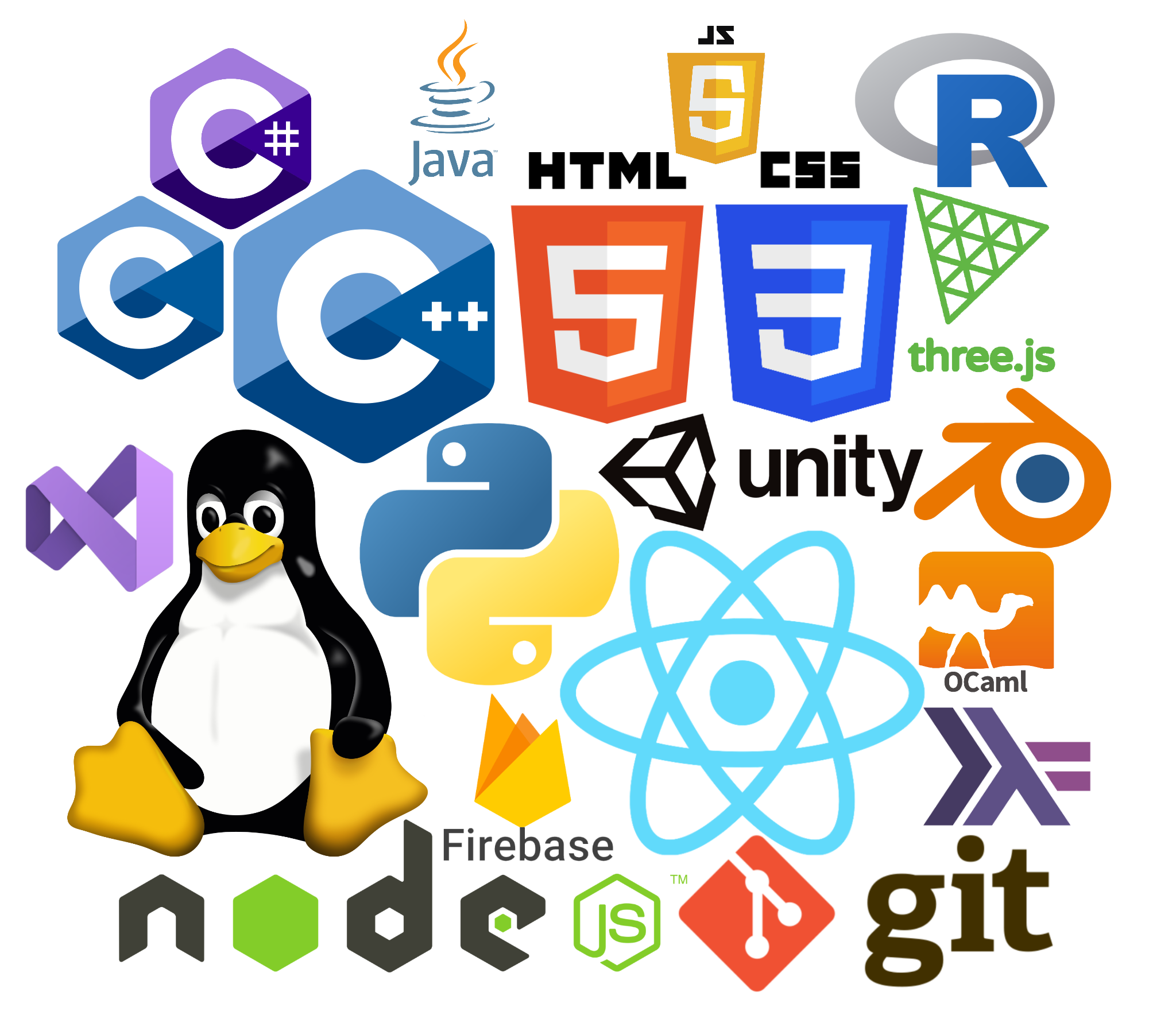
Code Portfolio
-
2/1/25 to 2/2/25 [Github]
Serene Stream encourages you to engage with their surroundings by recording sound bytes: bird calls, water features, leaf rustling, etc. The app is minimalistic and audio-based to allow you to focus on their surroundings. After saving a few clips, these clips can be remixed with a chosen prompt into a personalized AI-generated lofi song. We hope the community can always bring a piece of nature home with them to build that connection and invest in their mental health. Furthermore, after creating tracks, we utilize an audio-to-vector comparison to fetch anonymous tracks from all over the world that are most similar to yours. In this way, Serene Stream fosters a sense of connection by nature lovers everywhere.
Inspiration: The LGBTQ community experiences disproportionately higher rates of depression, anxiety, and suicide. While the cause of this is systemic and something we're still working through as a society, the age-old balm to mental health has always been nature. We were also inspired by National Parks which allow people to support the preservation and ownership of natural treasures simply by being in the parks. We wanted to combine attachment to our local greenspaces with investment in one's own mental health through nature. Our app hopes to foster creativity in the outdoors without impeding on being present when there.
This project was an entry and first place winner in the 2025 QWER Hacks hackathon's Sustainability category, as well as winner for Most Creative and Best Use of Gen AI superlative prizes.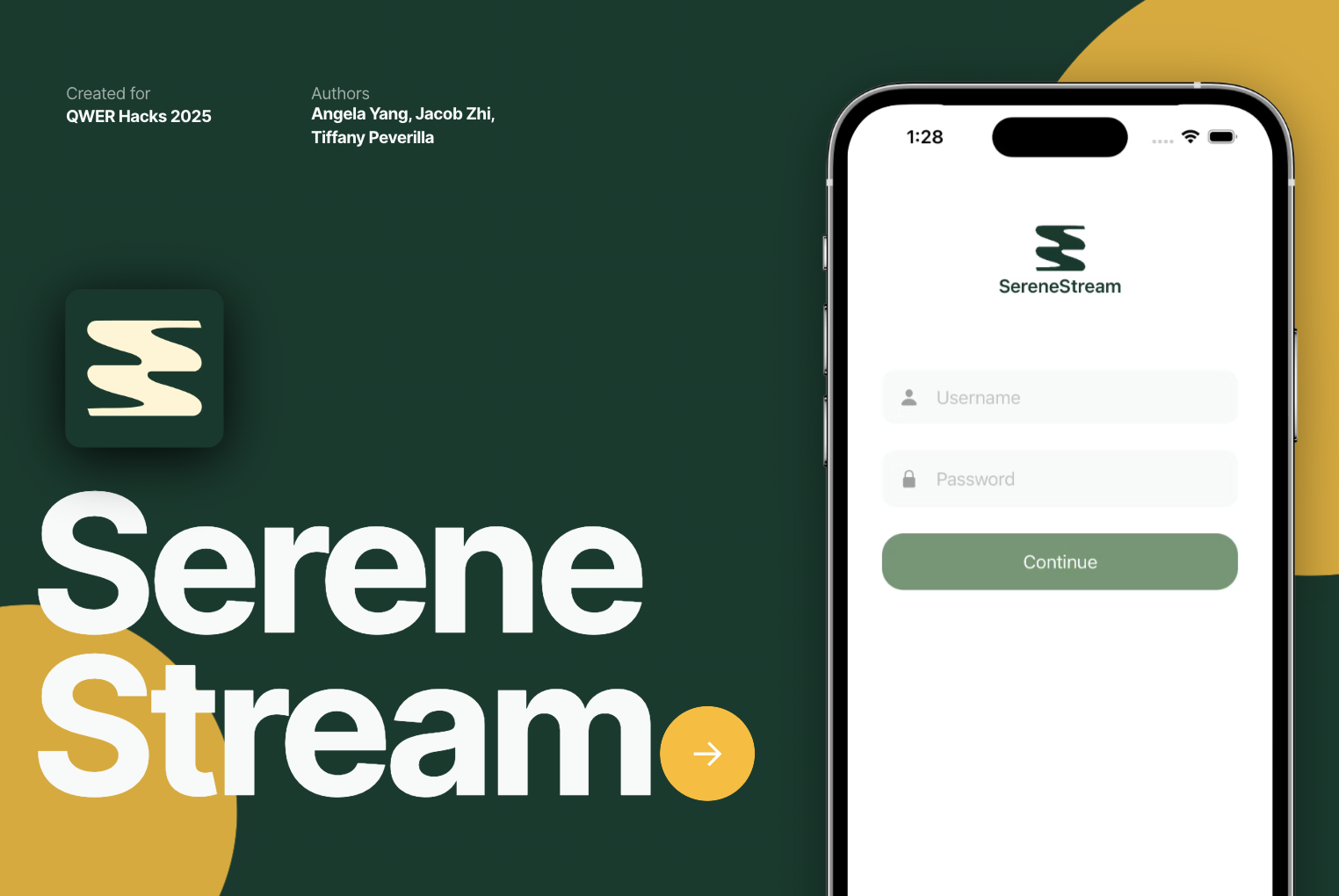 Devpost
Devpost
-
2/2/24 to 2/4/24 [Github]
PRideal World aims to teach bias-awareness through immersing users in interactive social situations grounded in real life and powered by an LLM trained on empathy. For those outside the community, PRideal World is a place to unearth subconscious biases and learn how to support those around them. For LGBTQ visitors to PRideal World, our simulators can validate the feelings of those who may have been in similar situations.
The choice to use Large Language Models was a deeply integral one. LGBTQ individuals must “conserve their energy” to avoid sacrificing their own well-being to the movement. Simply put, our LLM—who talks through Valour the Unicorn—has the ability to give personalized, nuanced feedback to those who would most benefit, without sacrificing human time and effort.
Why the Unicorn? Unicorns, which are considered idealistic beasts, have been a long standing symbol of the LGBTQ community, representing acceptance, embracing one's uniqueness, and unbridled (ha!) self expression.
This project was an entry and third place winner in the 2024 QWER Hacks hackathon's Non-Traditional category, as well as winner for Most QWER superlative prize.Full Video
-
1/28/23 to 1/29/23 hellodoctorama.tech [Github]
Dr. AMA is a web-based medical chat app created to fight discrimination against the LGBTQ+ community. Dr. AMA allows users to create their own profile that fits with their social identity and medical needs while providing anonymity and safeguarding against bias. This is accomplished through a customizable avatar option and the freedom to choose the questions to answer and share on the health profile checklist that are more aligned with users' medical needs. Additionally, users have the option to choose which physician they would like to be treated by from Dr. AMA's diverse and inclusive registry of inclusivity-trained medical professionals, easing patients', especially those belonging to minority groups, comfort around physicians and ultimately improving patient-physician interactions. Once a physician has been selected, patients may chat and engage with the doctor without fear of discrimination.
This project was an entry and second place winner in the 2023 QWER Hacks hackathon's health category.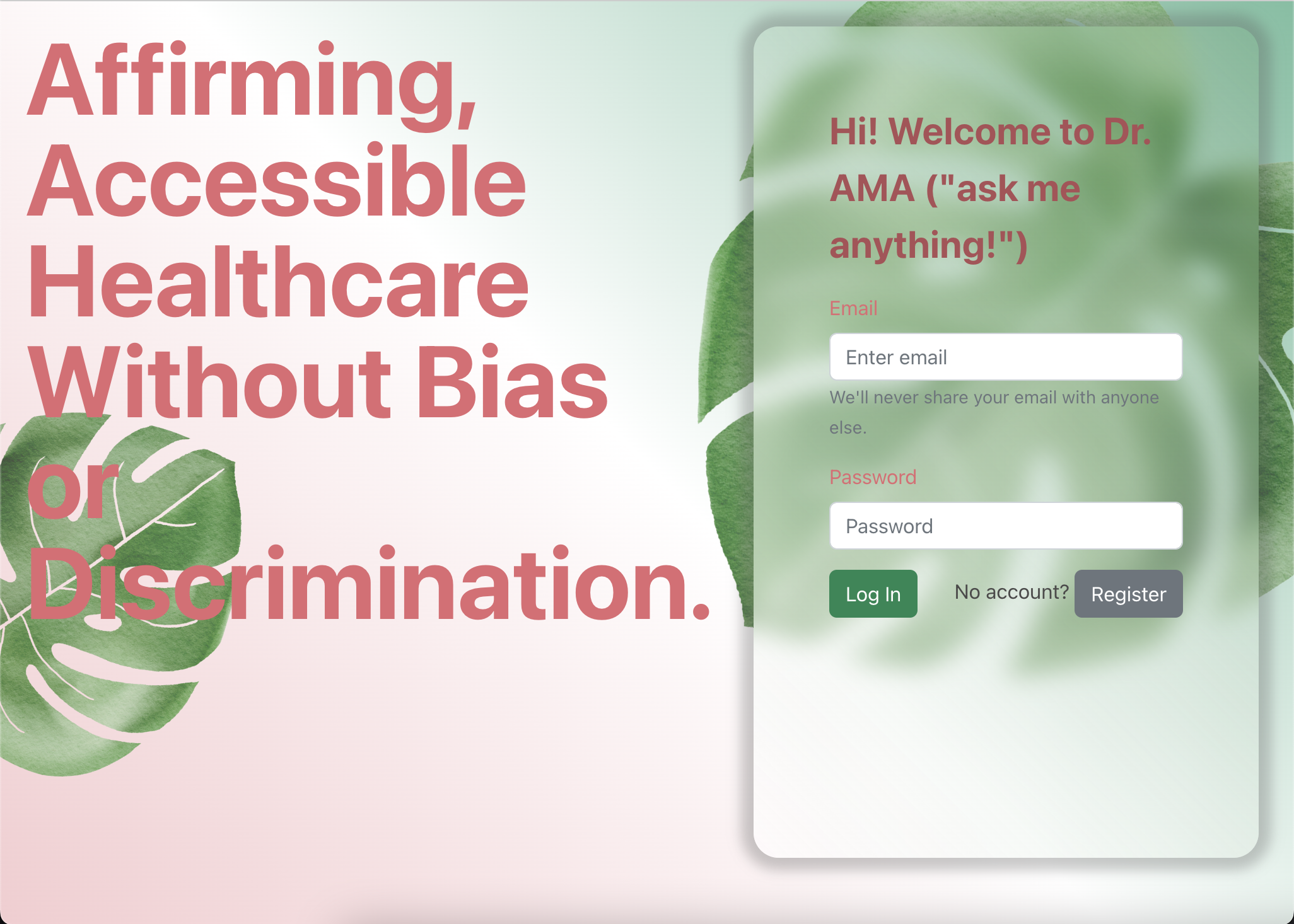
-
3/5/23 [Github]
We wanted to see if we could use machine learning to teach the general populace, especially in a city as traffic-prone as LA, good driving habits and attitudes to prevent road rage incidents. RoadRager is a 2D-style game that allows the user to control a vehicle in a fictional universe. There is a car in front of the vehicle, and they must be cautious not to be too aggressive a driver, especially when weather and road conditions constantly change. The driver is rated by a slider that informs the user how aggressively they are driving. The driving data is uploaded to a Google Cloud endpoint, where it is analyzed against machine learning model of our own design, trained on real-world driving data. The user must drive cautiously in order not to be rated as aggressive. We hope this will build good driving habits. This project was an entry and the first place winner of Best Game in the HOTHX hackathon at UCLA.
Full Video
-
4/21/23 to 4/23/23 moon-struck.tech [Github]
Moon-Struck is a web application that enables couples who are in a long-distance relationship to stay in touch with each other and allows them to keep an active role in each others' everyday lives. Moon-Struck is focused on the “Home Away from Home” track, which is best showcased through a user's ability to see their partner's real-time weather updates, location, timezone information, and post-it notes. Through these windows into your loved ones' life, as well as quality-of-life features such as a menstrual calendar and a countdown to your reunion, Moonstruck allows people to feel as if they were with their partners in real life. Moon-Struck was built in the MERN software stack; specifically, we used MongoDB with Mongoose, Express, React, and NodeJS. This project was an entry in the 2023 LA Hacks hackathon.
Full Video
-
2/8/22 to 12/10/22 [Github]
This project was a React Native mobile app commissioned by Dr. Edmund Tsui, a pediatrician at the Geffen Medical Center. It's intended use is as a self-monitoring symptom diary for his patients with juvenile idiopathic arthritis. I further developed on an existing static site and implemented authentication and registration capabilities.
-
4/6/23 to 9/30/23 [Github]
The Infant Speech App is a research software tool used to organize and search for phonetically-significant segments in large Pratt audio files. Phonetics research is expedited with this tool, as trends and patterns can be statistically gleaned from larger data sets. This was tested and optimized on a large Spanish database of infant speech, and currently being expanded to accomodate a more extensive English audio archive as well as mapped onto visual representations. This app was a commission project by the UCLA Language Acquisition Lab. It was built using Shiny R Studio.
Full Video Full Video
-
3/5/22 to 6/10/22 [hosted here] [Github]
FloraFauna is a web-based application used to keep track of local flora and fauna species within a given geographic area. We built FloraFauna to provide an easily accessible, crowdsourced wildlife population database and tracking software for researchers and hobbyists alike. Users post and interact with sightings (pictures) of flora and fauna. FloraFauna was a group term-project for the Software Construction course at UCLA.
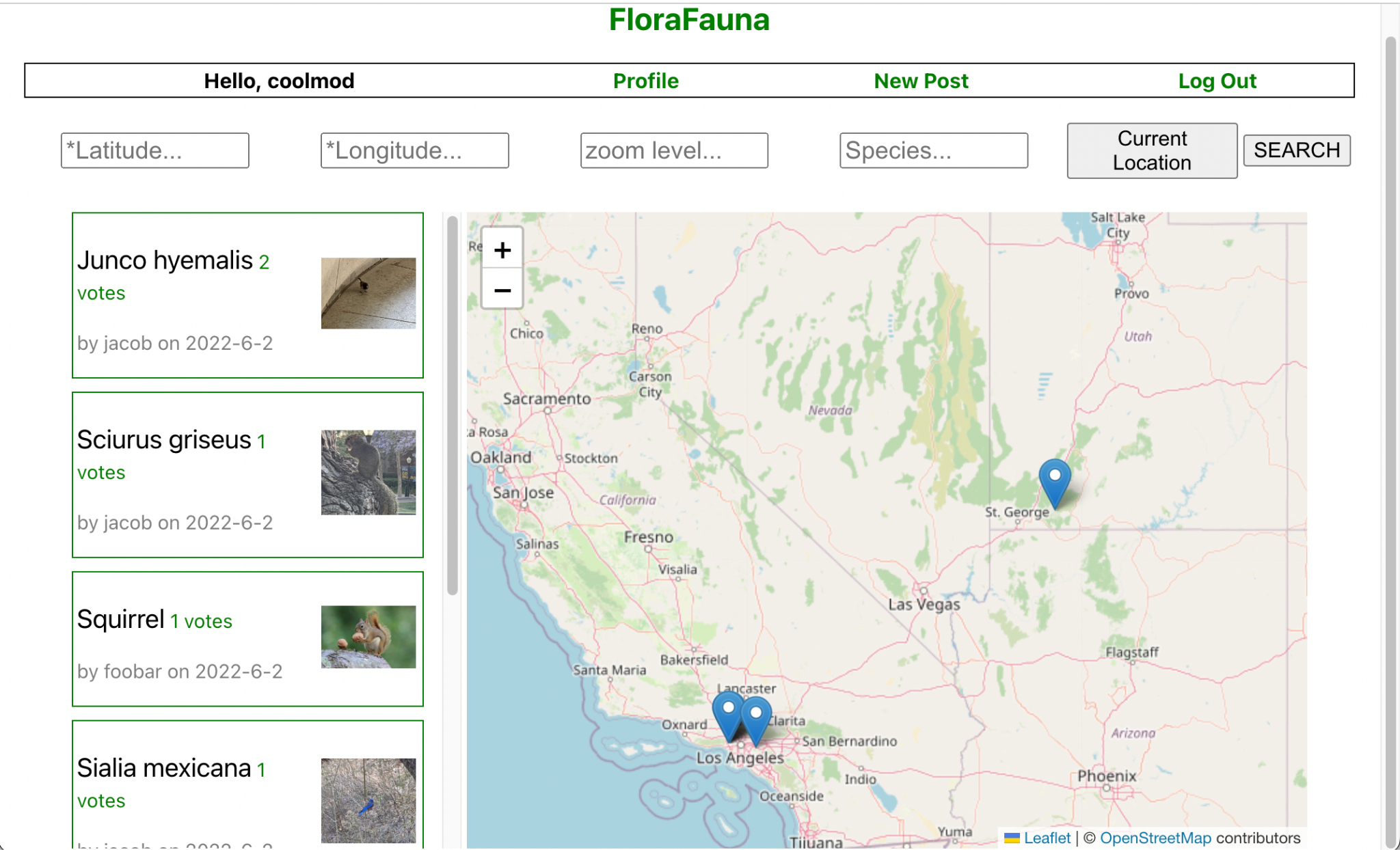
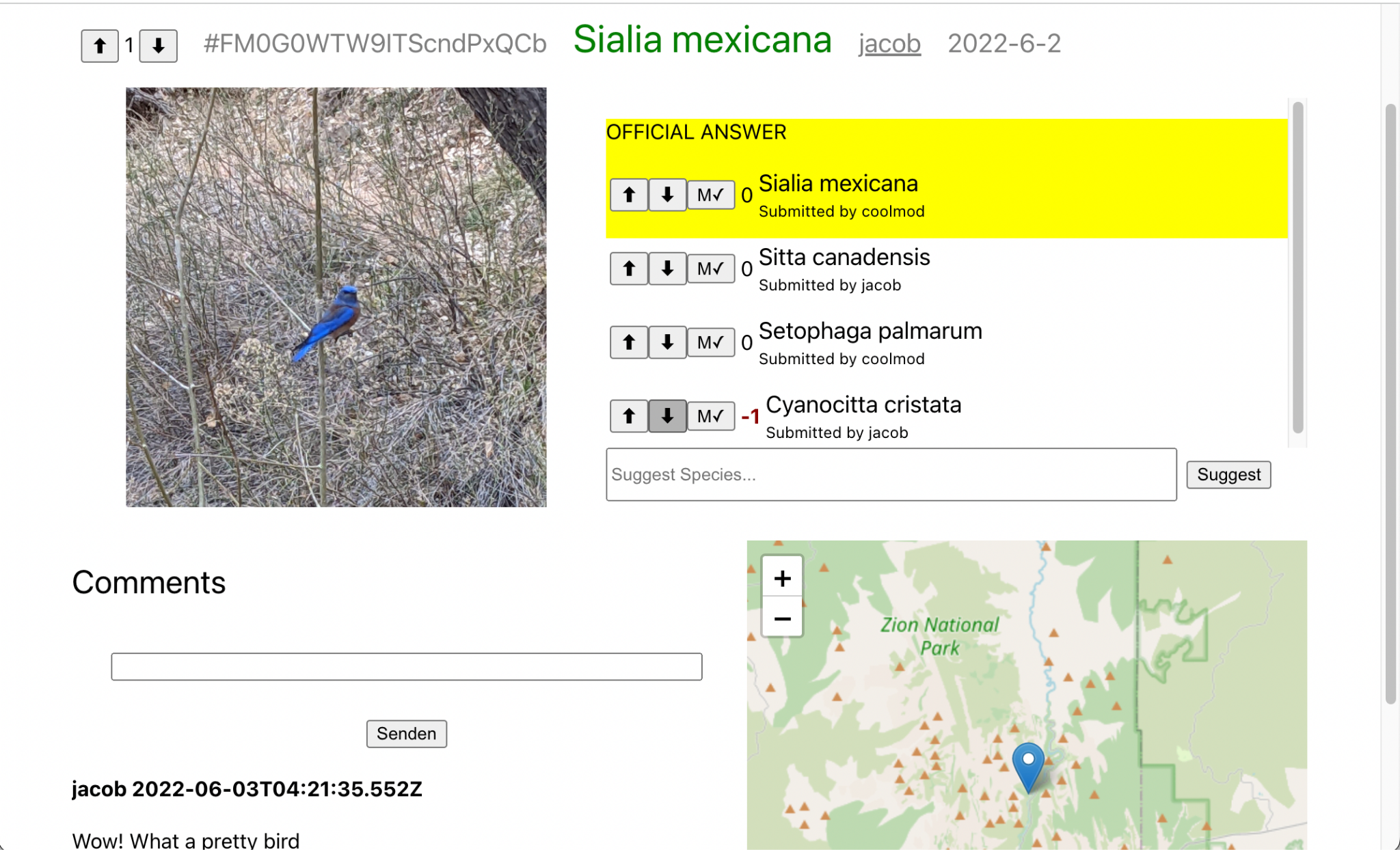
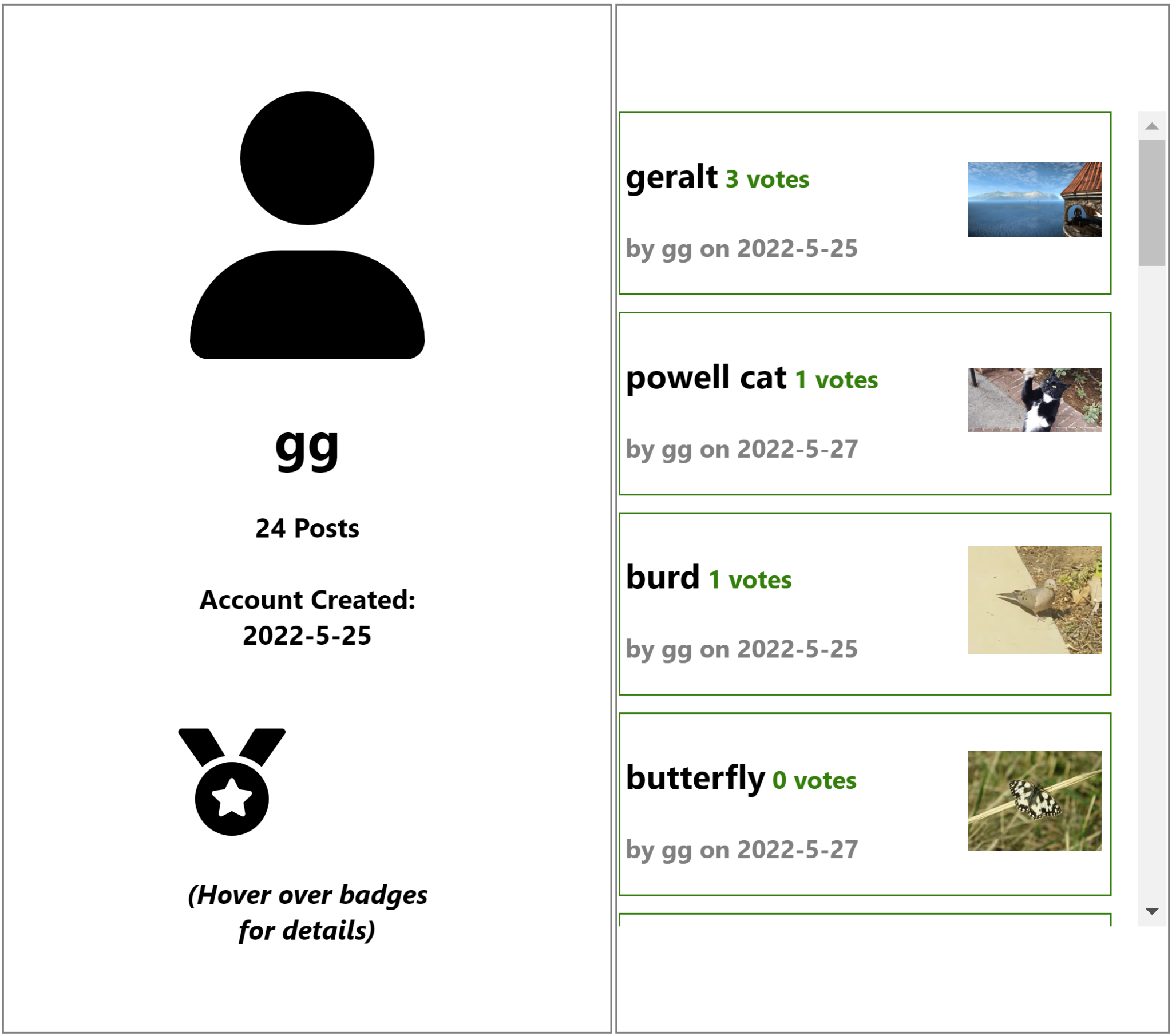
Socials